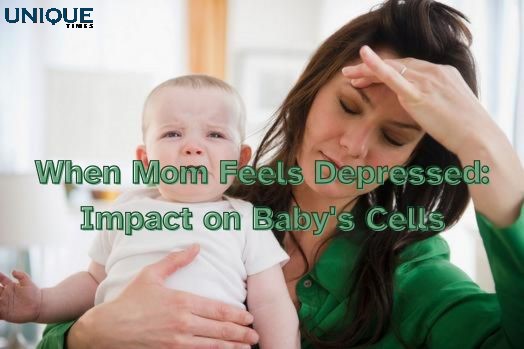Maternal Depression and Its Surprising Impact on Baby’s Cells

The bond between a mother and her child is a profound and intricate one. It’s well-established that a mother’s emotional well-being can significantly affect her child’s development. Recent research has uncovered a surprising connection: when a mom experiences depression, her baby’s cells may also “feel” it. Let’s explore this fascinating link between maternal depression and its influence on a baby’s cells.
The Hidden Impact of Maternal Depression
Maternal depression is a complex and often challenging condition that can have far-reaching consequences. Beyond its immediate effects on the mother’s mental health, it can also impact the well-being of her child, from emotional development to cognitive function.
The Role of Epigenetics
Epigenetics is a field of science that explores how environmental factors can influence gene expression without altering the underlying DNA sequence. It’s here that the surprising connection between maternal depression and a baby’s cells emerges.
Epigenetic Changes in Babies
Recent studies suggest that maternal depression may lead to epigenetic changes in a baby’s cells. These changes can affect the regulation of genes involved in stress response and emotional regulation. Essentially, the environment in the womb, influenced by the mother’s emotional state, can “mark” certain genes in the baby’s DNA.
The Potential Consequences
The epigenetic changes induced by maternal depression can have long-term consequences for the child’s emotional and psychological well-being. They may make the child more susceptible to stress and mental health challenges later in life. It’s like a subtle but significant ripple effect stemming from the mother’s emotional state during pregnancy.
The Importance of Maternal Mental Health
Understanding the link between maternal depression and epigenetic changes in babies underscores the importance of maternal mental health care. Supporting mothers in managing and seeking treatment for depression not only benefits their well-being but also lays a foundation for the healthy development of their children.
Conclusion
The connection between a mother’s emotional state and her child’s well-being is profound and intricate. The emerging field of epigenetics reveals that even a mother’s depression can leave a lasting imprint on her baby’s cells, potentially impacting their future emotional and psychological health. Recognizing this link emphasizes the critical need to prioritize maternal mental health care and support, recognizing that a healthy mother is vital for the healthy development of her child—both in body and mind.
Picture Courtesy: Google/images are subject to copyright








